 W
WVictor Alter was a Polish Jewish socialist activist and Bund publicist, and a member of the executive committee of the Second International.
 W
WMenachem Begin was an Israeli politician, founder of Likud and the sixth Prime Minister of Israel. Before the creation of the state of Israel, he was the leader of the Zionist militant group Irgun, the Revisionist breakaway from the larger Jewish paramilitary organization Haganah. He proclaimed a revolt, on 1 February 1944, against the British mandatory government, which was opposed by the Jewish Agency. As head of the Irgun, he targeted the British in Palestine. Later, the Irgun fought the Arabs during the 1947–48 Civil War in Mandatory Palestine and its chief Begin was also noted as "leader of the notorious terrorist organisation" by British government and banned from entering the United Kingdom.
 W
WZygmunt Henryk Berling was a Polish general and politician. He fought for the independence of Poland in the early 20th century. Berling was a co-founder and commander of the First Polish Army, which fought on the Eastern Front of World War II.
 W
WEugeniusz Bodo was a film director, producer and one of the most popular Polish actors and comedians of the inter-war period. He starred in some of the most popular Polish film productions of the 1930s, including His Excellency, The Shop Assistant, Czy Lucyna to dziewczyna? and Pieśniarz Warszawy. A skilled singer, he became one of the icons of Polish musical comedies of the time and a "symbol of Polish commercial cinema". Towards the end of that decade he also became a successful entrepreneur, a co-owner of a successful film studio, a café and a producers company. Arrested by the Soviets in the aftermath of the German and Soviet invasion of Poland, he perished in the Gulag.
 W
WWładysław Broniewski was a Polish poet, writer, translator and soldier. Known for his revolutionary and patriotic writings.
 W
WJózef Chaciński was a Polish lawyer and politician.
 W
WBolesław Drobner was a Polish politician. A member of the Polish Socialist Party, he supported cooperation with the communists. Arrested by the NKVD after the Soviet invasion of Poland, in 1943 he was released. Drobner joined a pro-Soviet Polish communist organization the Union of Polish Patriots and later the Polish Committee of National Liberation (PKWN). As leader of the "Lublin Poles", he led a delegation to Żagań on 13 May 1945 where he pledged allegiance of his town to the Soviet Union.
 W
WHenryk Ehrlich was an activist of the General Jewish Labour Bund in Poland, a Petrograd Soviet member, and a member of the executive committee of the Second International.
 W
WWładysław Filipkowski was a Polish military commander and a professional officer of the Polish Army. During World War II he was the commanding officer of the Armia Krajowa units in the inspectorate of Lwów and the commander of the Lwów Uprising. For his merits he was promoted to the titular rank of generał brygady.
 W
WStanisław Głąbiński was a Polish politician, academic, lawyer and writer.
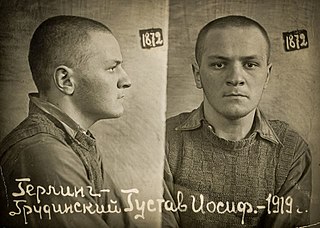 W
WGustaw Herling-Grudziński was a Polish writer, journalist, essayist, World War II underground fighter, and political dissident abroad during the communist system in Poland. He is best known for writing a personal account of life in the Soviet Gulag entitled A World Apart, first published in 1951 in London.
 W
WWładysław Maria Jakowicki was a Polish soldier, physician and an academic. Professor and rector of the Stefan Batory University in Wilno (Vilnius). Arrested, imprisoned and died in the aftermath of the Soviet invasion of Poland, exact location and place of death unknown.
 W
WJan Stanisław Jankowski was a Polish politician, an important figure in the Polish civil resistance during World War II and a Government Delegate at Home. Arrested by the NKVD, he was sentenced in the Trial of the Sixteen and murdered in a Soviet prison.
 W
WRyszard Kaczorowski, GCMG was a Polish statesman. From 1989 to 1990, he served as the last President of Poland in exile. He succeeded Kazimierz Sabbat, and resigned his post following Poland's regaining independence from the Soviet sphere of influence and the election of Lech Wałęsa as the first democratically elected President of Poland since before the Second World War.
 W
WGeneral Michał Tadeusz Karaszewicz-Tokarzewski, Coat of arms of Trąby pseudonym Doktor, Stolarski, Torwid was a Polish general, founder of the resistance movement "Polish Victory Service".
 W
WStefan Knapp was a Polish-born painter and sculptor, who worked in Great Britain. He developed and patented a technique of painting with enamel paint on steel, facilitating decorating public architectural structures.
 W
WWładysław Kochański Władysław Kochański was an infantry captain in the Polish Army during World War II. He was then part of the Polish resistance army Armia Krajowa after Germany occupied Poland, leading the Cichociemni special forces paratrooper resistance unit, and was one of the leading organizers of the Polish defense of Volhynia.
 W
WStefan Korboński was a Polish agrarian politician, lawyer, journalist and a notable member of the wartime authorities of the Polish Secret State. Among others, he was the last person to hold the post of Government Delegate for Poland. Arrested by the NKVD in 1945, he was released soon afterwards only to be forced into exile. He settled in the United States, where he remained active among the local Polish diaspora. An active journalist, he was among the few people whose names were completely banned by the communist censorship in Poland.
 W
WLeon Tadeusz Kozłowski was a Polish archaeologist, freemason and politician who served as Prime Minister of Poland from 1934 to 1935, before being convicted and sentenced to death for Treason during World War II.
 W
WAleksander Krzyżanowski nom de guerre "Wilk" was an artillery colonel of the Polish Army, officer of the Service for Poland's Victory, Union of Armed Struggle, commander of the Vilnius District of the Home Army, political prisoner of the Stalinist period. In 1994 he was posthumously promoted to the rank of brigade general.
 W
WJan Kwapiński (1885–1964), born Piotr Chałupka was a Polish independence activist and politician. A member of Combat Organization of the Polish Socialist Party, he was imprisoned by Russian Empire authorities in Warsaw Citadel. After Poland regained independence following the First World War, he became a member of Polish parliament (Sejm) after being elected in 1922 Polish legislative election. He then went on to serve as mayor of Łódź (1939). After being Soviet invasion of Poland arrested by the NKVD, then freed after the Sikorski-Mayski Agreement, he joined the London-based Polish government-in-exile as Deputy Prime Minister and Minister of Industry, Trade and Shipping, later Minister of Treasury.
 W
WHryhorij Lakota, also known as Gregor Lakota was a Ukrainian Greek-Catholic Church auxiliary bishop who suffered religious persecution and was martyred by the Soviet Government.
 W
WIvan Leopoldovich Lorents was a Polish-born Soviet diplomat.
 W
WHerminia Naglerowa was a Polish writer and publicist.
 W
WBeata Obertyńska,, born July 18, 1898, near Skole, died May 21, 1980 in London was a Polish writer and poet.
 W
WGeneral Leopold Okulicki was a General of the Polish Army and the last commander of the anti-Nazi underground Home Army during World War II. He was arrested after the war by the Soviet NKVD and murdered while imprisoned at Butyrka prison in Moscow.
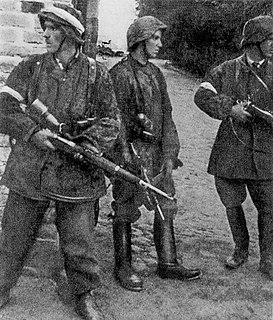 W
WWladyslaw Ossowski, was a Polish boyscout and member of the White Couriers.
 W
WAntoni Pająk was a Polish socialist politician, who served as 39th Prime Minister of Poland and 9th Prime Minister in exile for nearly ten years (1955-1965).
 W
WTeodor Parnicki (1908–1988) was a Polish writer, notable for his historical novels. He is especially renowned for works related to the early medieval Middle East, the late Roman and the Byzantine Empires.
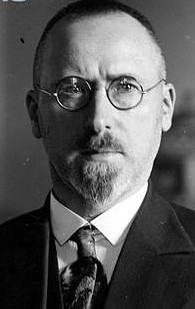 W
WJan Piłsudski, was a Polish politician and younger brother of Marshal Józef Piłsudski.
 W
WAleksander Błażej Prystor was a Polish politician, activist, soldier and freemason, who served as 23rd Prime Minister of Poland from 1931 to 1933. He was a member of the Combat Organization of the Polish Socialist Party and in 1908 took part in the Bezdany raid. Between 1912 and 1917 he spent in Russian prisons before being released in 1917. In March 1917 he joined Polish Military Organisation. After independce he became secretary in the Ministry of Labour and Social Welfare. He fought as a volunteer in the Polish-Soviet War of 1919-1920. He worked for few ministries. Between 1931 and 1933 he served as Prime Minister of Poland. After that he became the Marshal of the Polish Senate 1935-1938.
 W
WWacław Jan Przeździecki was a Polish military commander and Brigadier General of the Polish Army. During the Invasion of Poland in 1939, he was the commanding officer of the reserve Wołkowysk Cavalry Brigade that fought in the battle of Grodno.
 W
WKazimierz Pużak (1883–1950) was a Polish politician of the interwar period. Active in the Polish Socialist Party, he was one of the leaders of the Polish Secret State and Polish resistance, sentenced by the Soviets in the infamous Trial of the Sixteen in 1945.
 W
WPrince Hieronim Mikołaj Radziwiłł (1885–1945) was a Polish aristocrat, landlord in Balice. Radziwiłł was a great-grandson of Prince Maciej Radziwiłł. He and his children carried the style of Serene Highness.
 W
WPrince Janusz Franciszek Radziwiłł was a Polish nobleman and politician.
 W
WBronisław Stanisław Rakowski was a Polish general. He fought in the Polish legions during World War I and was imprisoned by the Soviet NKVD during Soviet invasion of Poland. During World War II, he fought in the Anders Army and Polish Armed Forces in the West.1931–1936: Commanding Officer 12th Ulan Regiment 1936–1939: Head of Army Historical Bureau 1939–1941: Prisoner of War, Soviet Union 1941–1942: General Officer Commanding 8th Division 1942: General Officer Commanding 5th Division 1942–1943: Chief of Staff Polish Forces in Soviet Union 1943–1945: General Officer Commanding 2nd Armoured Brigade 1945–1947: General Officer Commanding 2nd Armoured Division
 W
WRudolf "Rudek" Regner, was a Polish scout, soldier and member of the White Couriers. Before World War II, he worked as a bookkeeper in a cooperative located in southeastern Polish town of Turka.
 W
WRyszard Reiff was a Polish politician, lawyer, publicist and resistance fighter. He was a deputy to the Polish parliament (Sejm) during the 1968 Polish political crisis and again during the Martial law in Poland.
 W
WKonstantin Konstantinovich (Xaverevich) Rokossovsky was a Soviet and Polish officer who became Marshal of the Soviet Union, Marshal of Poland, and served as Poland's Defence Minister from 1949 until his removal in 1956 during the Polish October. He was among the most prominent Red Army commanders of World War II.
 W
WEugeniusz Rybka, was a Polish astronomer, professor of the Lviv University (1932–1945), Wrocław University (1945–1958) and director of the Kraków Astronomical Observatory (1952–1958). Also he was deputy director of the International Astronomical Union (1952–1958).
 W
WEustachy Kajetan Sapieha was a Polish nobleman, prince of the Sapieha family, politician, Polish Minister of Foreign Affairs, and deputy to the Polish parliament (Sejm).
 W
WMoses Schorr, Polish: Mojżesz Schorr was a rabbi, Polish historian, politician, Bible scholar, assyriologist and orientalist. Schorr was one of the top experts on the history of the Jews in Poland. He was the first Jewish researcher of Polish archives, historical sources, and pinkasim. The president of the 13th district B'nai B'rith Poland, he was a humanist and modern rabbi who ministered the central synagogue of Poland during its last years before the Holocaust.
 W
WBarbara Skarga was a Polish philosophy historian and philosopher who worked mainly in ethics and epistemology.
 W
WLeopold Skulski pronounced [lɛˈɔpɔlt ˈskulskʲi]; served as prime minister of Poland for six months from 13 December 1919 until 9 June 1920 in the interim Legislative Sejm during the formation of sovereign Second Polish Republic following World War I.
 W
WEmil Sommerstein was a Polish-Jewish lawyer, philosopher, activist and politician.
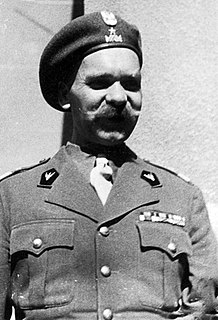 W
WNikodem Sulik-Sarnowski, who used the noms de guerre "Jodko", "Jod", "Karol", and "Sarnowski", was an officer of the Russian Imperial Army, and Generał brygady of the Polish Army.
 W
WStanisław Swianiewicz was a Polish economist and historian. A veteran of the Polish-Bolshevik War, during World War II he was a survivor of the Katyn Massacre and an eyewitness of the transport of Polish prisoners of war to the forests outside Smolensk by the NKVD.
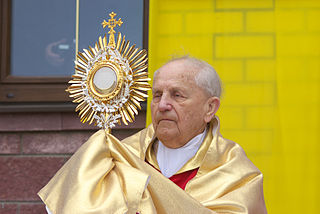 W
WKazimierz Cardinal Świątek was a Cardinal of the Roman Catholic Church who was most known for his resistance to Cold War-era Soviet Communism and for his service in Minsk, Belarus. Cardinal Swiatek was the former Metropolitan Archbishop of Minsk-Mohilev, and Apostolic Administrator of Pinsk.
 W
WStanisław Tatar nom de guerre "Stanisław Tabor" was a Polish Army colonel in the interwar period and, during World War II, one of the commanders of Armia Krajowa, Polish resistance movement. He was appointed brigade general in 1943 and half-a-year later flew from occupied Poland to London.
 W
WAleksander Wat was the pen name of Aleksander Chwat, a Polish poet, writer, art theoretician, memorist, and one of the precursors of the Polish futurism movement in the early 1920s, considered to be one of the more important Polish writers of the mid 20th century. In 1959, he emigrated to France and in 1963 relocated to the United States, where he worked at the Center for Slavic and East European Studies of the University of California, Berkeley.
 W
WMariusz Zaruski was a Brigadier-General in the Polish Army, a pioneer of Polish sports yachting, an outstanding climber of the winter and caves of Tatra Mountains. He was a photographer, painter, poet and writer, a seamen and traveler, a conspirator, legionnaire and lancer in Polish cavalry.
 W
WMarian Józef Żegota-Januszajtis was a Polish military commander and politician. One of the founders of Polish paramilitary pro-independence organizations in Austrian partition, and last commander of the 1st Brigade of Polish Legions.